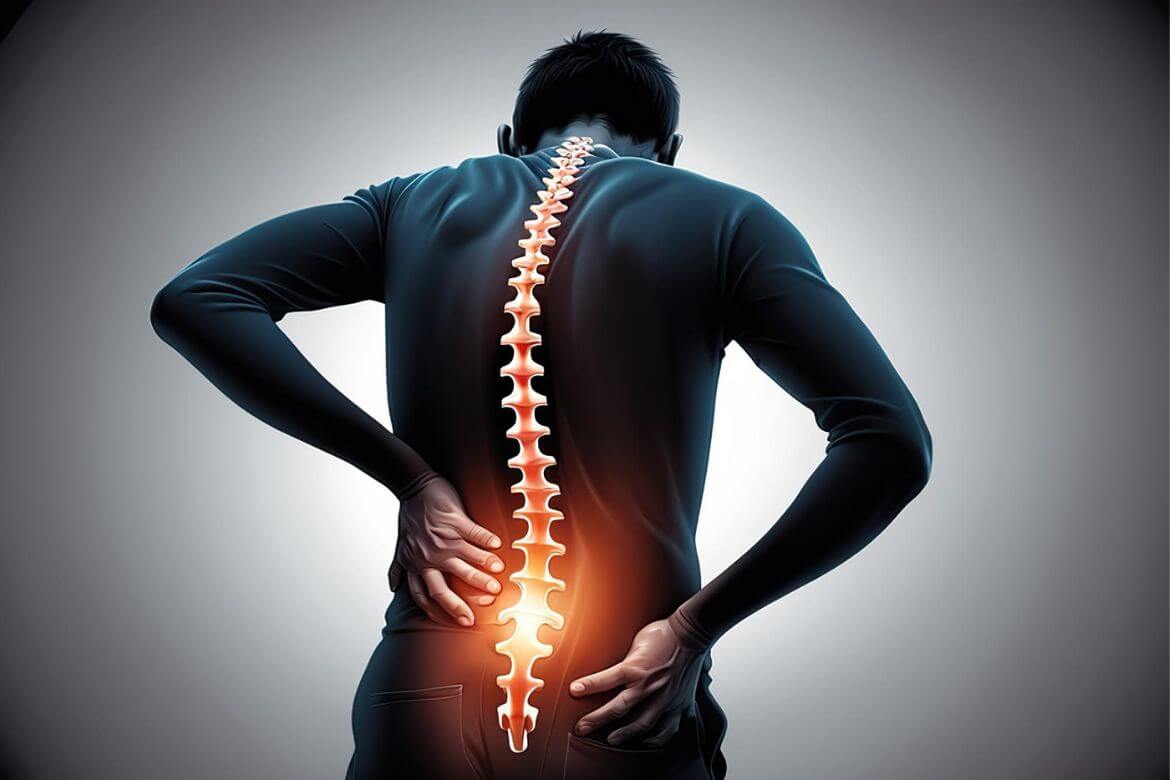Is scoliosis making it hard to keep up with your kids or grandkids? The Physio9 Clinic's scoliosis treatment in Pune can help you find relief and get back to enjoying life without limitations.
Scoliosis is a medical condition defined by an abnormal sideways curvature of the spine. The spine of an individual with scoliosis may look more like an "S" or a "C" shape rather than a straight line. Scoliosis can develop at any age, but it most commonly occurs during the growth spurt just before puberty.
However, it can also be caused by conditions such as muscular dystrophy, cerebral palsy, or congenital spine abnormalities. In a few cases, scoliosis can lead to back pain, breathing difficulties, or heart problems if the curvature of the spine is severe and affects the chest cavity.
At The Physio9 Clinic, we understand the impact scoliosis can have on your life and are dedicated to providing you with the support and treatment you need to manage your condition effectively.
The Physio9 Clinic's approach to scoliosis treatment in Pune focuses on addressing the underlying causes of your condition and improving your spinal alignment. Our treatment options include physical therapy and bracing. Our goal is to provide you with comprehensive care that helps you achieve better spinal health and reduces your pain.
The Physio9 Clinic is known for its expertise in scoliosis treatment in Pune. Our expert professionals are committed to providing you with personalized care and support throughout your treatment journey. We use the latest techniques and technologies to make sure you receive the best possible care.
At The Physio9 Clinic, we believe in providing holistic care to address your physical, emotional, and mental well-being.
Contact us today to learn more about our scoliosis treatment in Pune and start your journey towards better spinal health.
FAQ's
If you have scoliosis, it may be beneficial to avoid activities that put pressure on your back, like heavy lifting or high-impact sports. Always try to maintain good posture and a healthy lifestyle; they will help you manage symptoms.
Yes, many people with scoliosis are able to live normal, active lives with proper management and treatment. Regular monitoring by a healthcare provider and appropriate lifestyle improvements can help minimize the impact of scoliosis.
Scoliosis is not always curable, but it is often manageable. The goal of treatment is typically to prevent the curve from worsening, reduce pain, and improve quality of life.
Scoliosis can vary in severity, and not all cases are considered serious. Mild scoliosis may not cause any symptoms or require treatment, while severe scoliosis can lead to pain, deformity, and breathing difficulties in some cases.
For people with scoliosis, sleeping on the back with a pillow under the knees or on the side with a pillow between the knees can help maintain spinal alignment. It's better to avoid sleeping on the stomach.
Scoliosis symptoms can include uneven shoulders or hips, one shoulder blade, a visible curve in the spine that appears more prominent than the other, and back pain or stiffness.
Scoliosis can occur at any age, but it is commonly discovered during adolescence when the spine is growing rapidly. In some cases, scoliosis may continue to progress into adulthood.
The stages of scoliosis are typically classified based on the degree of spinal curvature: mild (10-25 degrees), moderate (25-40 degrees), and severe (over 40 degrees). Treatment options may depend on the stage of scoliosis.
The definite cause of scoliosis is often unknown. Still, it can be related to factors such as genetics, muscle imbalances, and abnormalities in the spinal structure.
Scoliosis primarily affects the spine and musculoskeletal system. In serious cases, it can lead to compression of the lungs and other organs, which may affect breathing and overall function.







